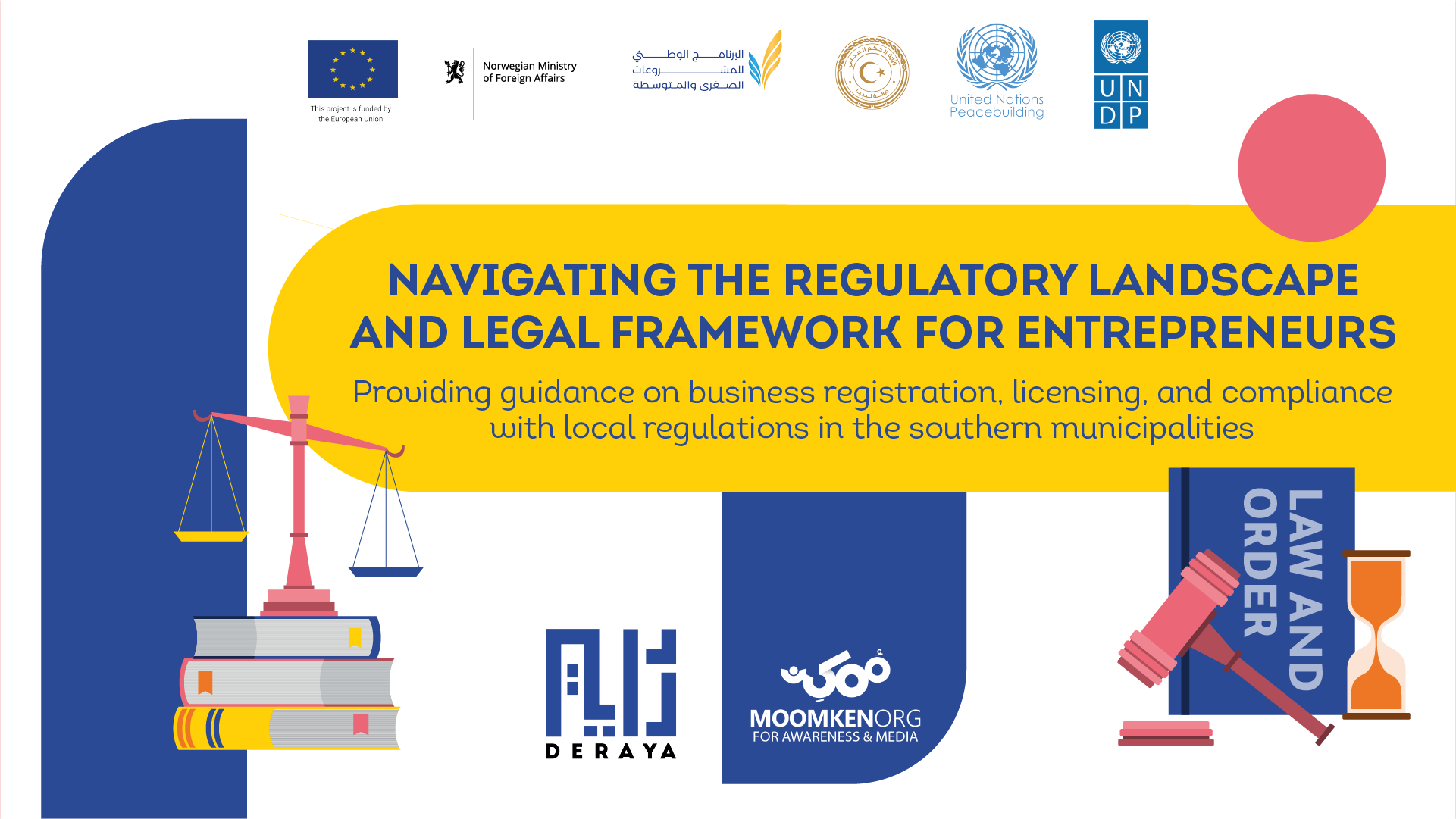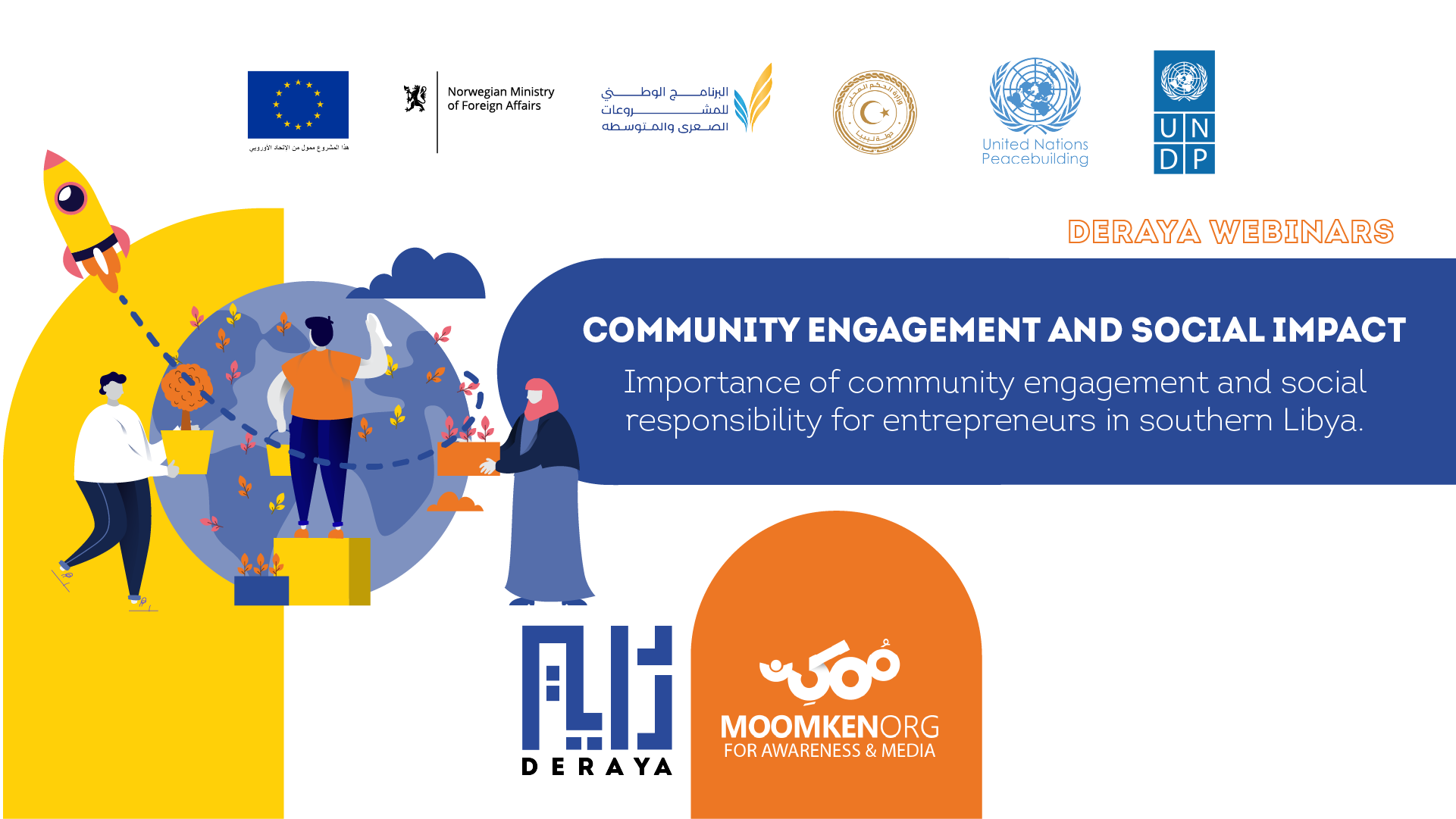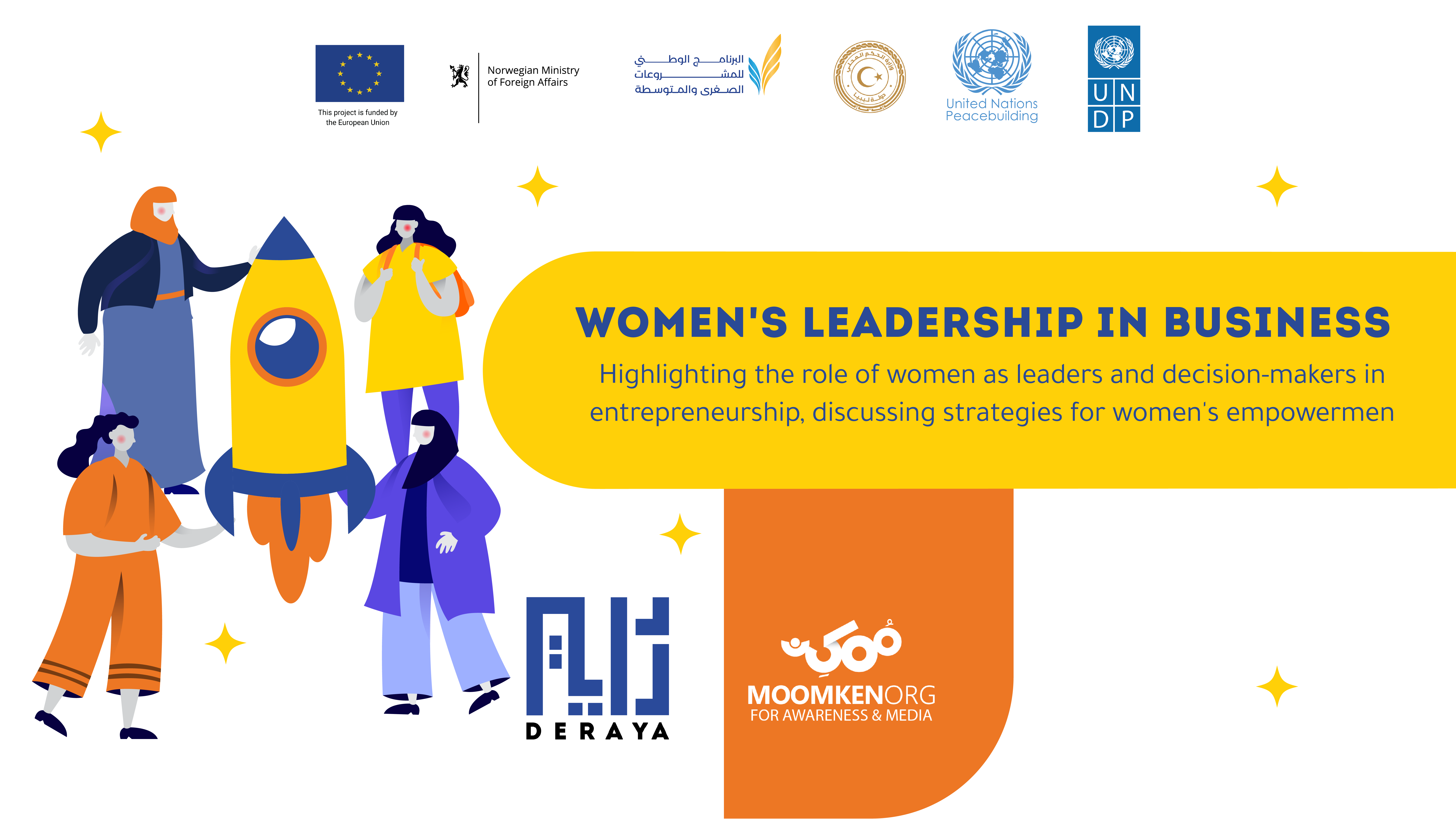Paving the Path for Women Entrepreneurs
The entrepreneurial journey for women in North Africa presents a mix of obstacles and potential. Despite progress, social norms often limit their ambitions, restricting them to traditional roles. This apprehension towards risk-taking in entrepreneurship can stifle their progress. However, an emerging wave of women entrepreneurs in North Africa seeks to defy norms, inspiring others to embrace innovation and drive economic growth.
Recognizing the significance of fostering gender equality in entrepreneurship, the 4th webinar titled 'From and to Women Entrepreneurs' is set to shed light on the experiences and achievements of women entrepreneurs in Libya, Egypt, and Tunisia. In this webinar, three remarkable women will share their success stories and offer insights on overcoming challenges and seizing opportunities in the entrepreneurial landscape. They were:
-
Rima Attiga, who made history as the youngest woman in Libya to become the Medical Director of the Libyan-Swiss Diagnostic Center in Tripoli.
-
Aya Elgebeely, the Founder and CEO of Talents Arena, an AI-enabled tech recruitment platform, she is bridging the gap between top tech talent and recruiters.
-
Ichraf Jarray, who founded 'Hive12,' a vibrant co-working space that provides consulting, incubation, and research opportunities for startups.
Obstacles and Empowerment: Breaking Societal Barriers
One of the biggest challenges faced by women in North African societies is the deeply entrenched mentality and social restrictions that discourage them from venturing into entrepreneurship. Chiraz, a project manager at MAZAM and the moderator of this webinar highlights the need for dismantling these barriers by stating, "I worked with an entrepreneurial program and noticed the difference in cultural obstacles that women and men are facing".
Encouragingly, women like Aya believe in the value of taking risks, acknowledging that failures are stepping stones to success. Nevertheless, the underrepresentation of women in funding reports—merely 3% in 2021—is a glaring concern that extends beyond Libya and the Arab world. Aya's realization of the additional obstacles she faced due to her gender underlines the need for targeted initiatives to empower women entrepreneurs and she affirms this, stating, "I believe in experiences, I’d rather experience and fail than not do anything and regret it".
The Entrepreneurial Landscape: Obstacles Confronting Libyan Women
In Libya, traditional gender roles and cultural norms have historically limited women's access to education, employment, and entrepreneurial opportunities. Rima exemplifies this challenge by stating, "If a door opens for a man, two doors will close for me “and it is my job to figure out how to open them”.
Moreover, the ongoing political instability and conflict in the country have created a challenging business environment, with security concerns being a significant obstacle for entrepreneurs, including women.
Access to funding and financial resources was a common challenge for many entrepreneurs in Libya. Financial institutions might be hesitant to lend to small businesses, particularly those run by women.
As Aya said, “Women in Libya rely mostly on the money provided by their families and friends due to the financing challenges they face”.
Additionally, the lack of networking opportunities and mentorship programs tailored to women exacerbates the difficulties faced by aspiring entrepreneurs.
Empowering Women Entrepreneurs: Breaking Stereotypes and Driving Success
Amidst these challenges, women entrepreneurs in North Africa are excelling and making notable strides. Breaking stereotypes and empowering others, successful women entrepreneurs serve as inspiring role models for young women and girls. Their unique leadership styles promote collaborative, empathetic, and inclusive work environments that foster growth and productivity. Moreover, research highlights that diverse leadership teams, including women, lead to enhanced corporate performance, signalling the value of women”s contributions in driving businesses forward.
Unlocking the Potential: Support and Opportunities for Women Entrepreneurs
Addressing these challenges and unlocking women's entrepreneurial potential requires concerted efforts. Providing quality education and skill development programs equips women with essential entrepreneurial expertise. Elevating the visibility of successful women entrepreneurs through media, events, and online platforms inspires and motivates aspiring entrepreneurs.
Surrounding oneself with the right people who encourage and support women entrepreneurs is crucial for their success. Positive and empowering relationships provide a strong foundation, boosting confidence and resilience, and pushing them to overcome obstacles. A supportive network fosters a conducive environment where women can exchange ideas, seek guidance, and receive valuable mentorship, propelling them further in their entrepreneurial journey.
“If you have a goal and you are well surrounded, know for sure that you can achieve it”, stated Ichraf.
Positive Discrimination: Empowering Women Entrepreneurs
Positive discrimination, also known as affirmative action, serves as a means to bridge the gap between genders in various fields, including entrepreneurship. By specifically addressing historical and systemic disadvantages faced by women, positive discrimination aims to create a more level playing field, fostering greater gender equality. Nonetheless, it is crucial to strike a balance, ensuring support is based on merit and qualifications, and fostering inclusivity and diversity.
Throughout history, women have faced numerous barriers that hindered their participation in the business world. Positive discrimination acknowledges these past disadvantages and seeks to rectify them by providing targeted support and opportunities to women entrepreneurs.
Affirmative action initiatives can ensure that women have equal access to crucial resources, such as funding, mentorship, and networking opportunities. By providing these resources, women can compete on a more equal footing with their male counterparts.
Systemic discrimination can erode the confidence and self-belief of women, making them hesitant to pursue entrepreneurial ventures. Positive discrimination can instil confidence by demonstrating that society recognizes and values women's potential in entrepreneurship.
Rima stated, "It is easier for the man to focus 100% of his energy on his career while the women will always have another full-time job at home which is why I think this positive discrimination is essential”
Striving for Equality: Addressing Drawbacks
As positive discrimination is implemented, some concerns arise. The perception of preferential treatment may undermine the credibility of women entrepreneurs, overshadowing their merit-based success. Overgeneralization may overlook the unique experiences and diversity within the women's entrepreneurial community. Consequently, addressing the root causes of gender inequality is essential to drive lasting change.
A Bright Future for Women Entrepreneurs
In conclusion, women entrepreneurship in North Africa, including Libya, presents both challenges and opportunities. Overcoming societal norms, limited access to finance, and security concerns are significant obstacles that need to be addressed. However, as exemplified by successful female entrepreneurs like Rima Aatiga, Aya Jubaili, and Ichraf Jarray, breaking gender stereotypes, and empowering others can pave the way for a more inclusive and thriving entrepreneurial ecosystem. By providing women with access to education, mentorship, and networking opportunities, and by creating an environment of support and encouragement, we can unlock the immense potential of women entrepreneurs and propel them towards creating innovative businesses and contributing to the growth and prosperity of the region. The journey towards women's entrepreneurship may be challenging, but by working collectively to dismantle barriers and foster an empowering ecosystem, we can build a brighter future where women can thrive and lead in the world of entrepreneurship.
Watch the full recording of the webinar in Arabic
OTHER WEBINARS AND CASE STUDIES
At the beginning, we must understand that...
The Moomken Organisation hosted Hind Al-Bashari,...






